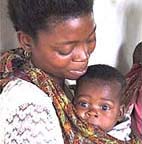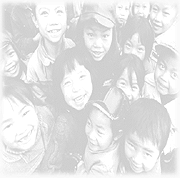| |||

Credits and Copyright
| | |||||||||||||
|
The Global Alliance for Vaccines and Immunization and the the Vaccine Fund have just updated the guidelines and application forms for submission of proposals and invite eligible countries to submit proposals to the GAVI Secretariat. The closing date for the next round is 30 September 2002. Proposal documents are provided here in English, French and Russian. Available forms of support Currently, the Vaccine Fund provides governments the following support: (1) new and under-used vaccines – currently hepB, Hib and yellow fever, (2) funding to help governments strengthen their basic immunization services, and (3) safe injection equipment in the form of auto-disable (AD) syringes and safe disposal boxes. Criteria Only national governments may receive support from the Vaccine Fund (NGOs, research institutes, etc., are not eligible). Basic eligibility for support has been set according to national income: countries with GNP per capita below $1,000 – 74 in all – are eligible. The general criteria for funding are:
In addition, based on a decision of the GAVI Board at its June 2001 meeting to place special emphasis on safety of immunization, a new general criterion has been added:
Decisions about eligibility for the different forms of support (see above) is based on the countries’ DTP3* coverage rates as follows:
* Represents a full, three-dose cycle of diphtheria, tetanus and pertussis vaccine under age 1. The steps All eligible countries are invited to submit proposals, with 10-day reviews held in Geneva throughout the year. Countries are strongly encouraged to prepare their proposals in collaboration with their national partners. Alliance members at the country level (usually an ICC) are required to sign the proposals, thereby indicating their endorsement and agreement with the information provided. The Guidelines for Proposals and Application Form (see attached) are available in English, French and Russian; proposals are accepted in either English or French. The review/the reviewers Proposals are reviewed at set times throughout the year in Geneva by a group of independent experts in health and immunization (see attached for composition of Independent Review Committee). Currently there are nine reviewers, eight of whom are from developing or middle income countries. Some are current or previous EPI managers, directors or medical services or the like, one is a health economist (a health minister was previously on the Committee). No country documentation is sent out to the reviewers before the review sessions in Geneva. Prior to their review by the Committee, each proposal has been pre-assessed by a WHO expert group which looks at consistency of information, validity of data provided, coordination with polio eradication and injection safety efforts. Their feedback is provided in written form to the Independent Review Committee for their use during deliberations on the proposals. The review results in recommendations as follows:
The review committee recommendations are forwarded to the GAVI Board for decision. To date, the GAVI Board has accepted all of the independent review committee recommendations. The Vaccine Fund Board usually meets within hours to confirm the GAVI Board decision. To date, the Vaccine Fund Board has confirmed all of the decisions made by the GAVI Board, without exception. The review process – from the cut-off date for submission of proposals, to notification of review outcome to countries – is executed within six to eight weeks. The guidelines and form for proposal submissions appear below. They were revised in August 2002 (Revision 4). This version should be used for all proposals henceforth. You may download Microsoft Word versions of the proposal documents: ENGLISH:
FRENCH:
RUSSIAN:
You may also download Microsoft Word versions of the annual report form:
Guidelines for preparing a national immunization program financial sustainability plan. If you have questions, please contact your local UNICEF or WHO office, or the GAVI Secretariat at gavi@unicef.org
| |||||||||||||
| Contact GAVI | Guestbook | Text version | Credits and Copyright | |||||||||||||

